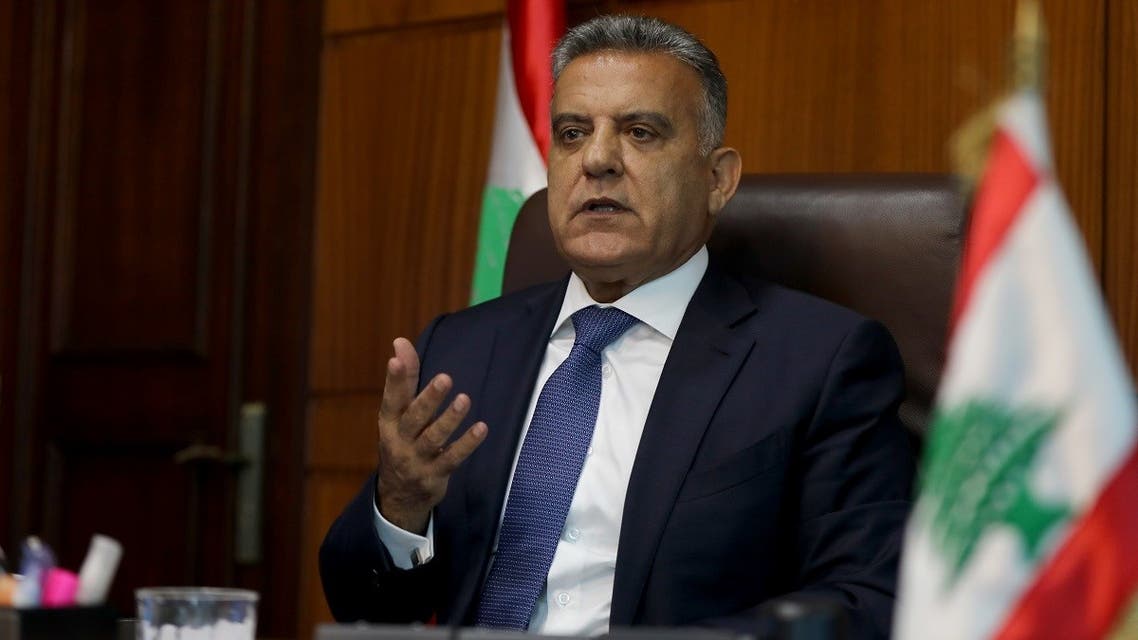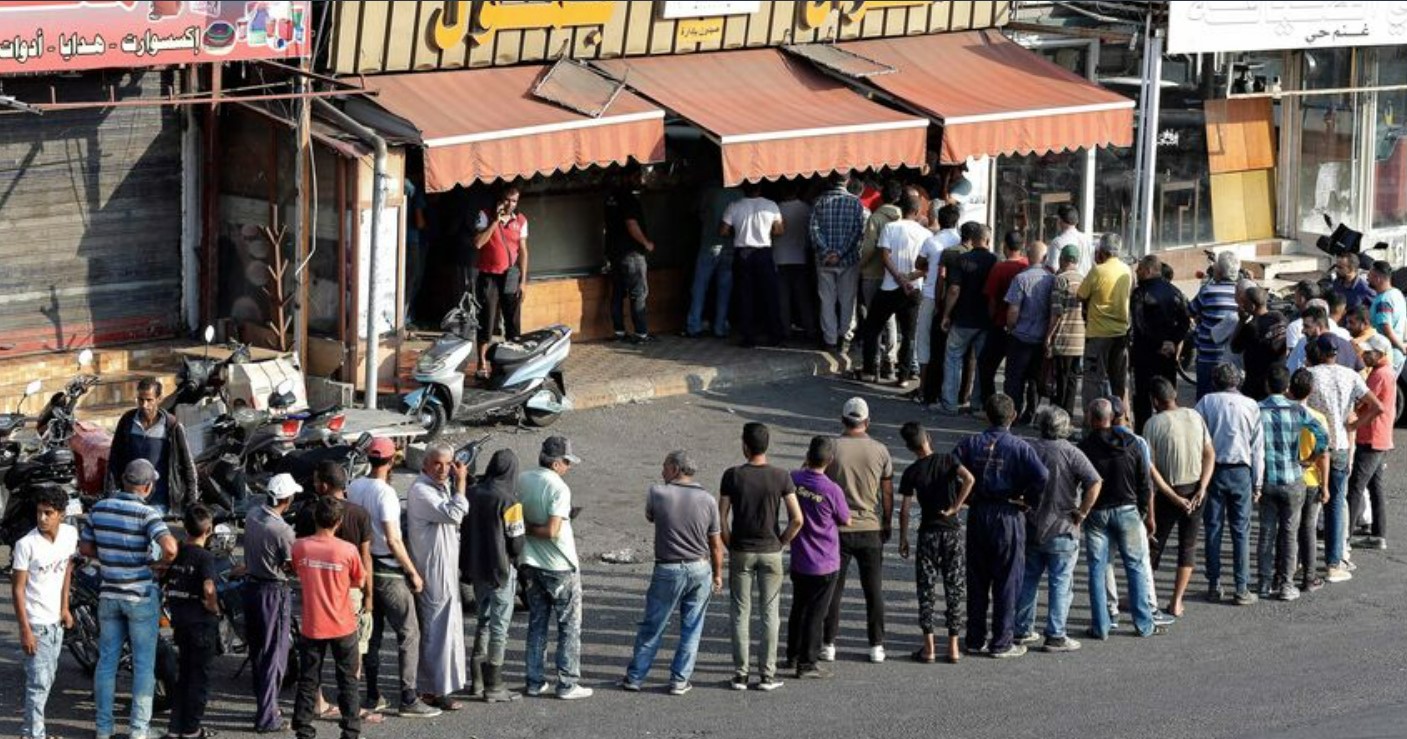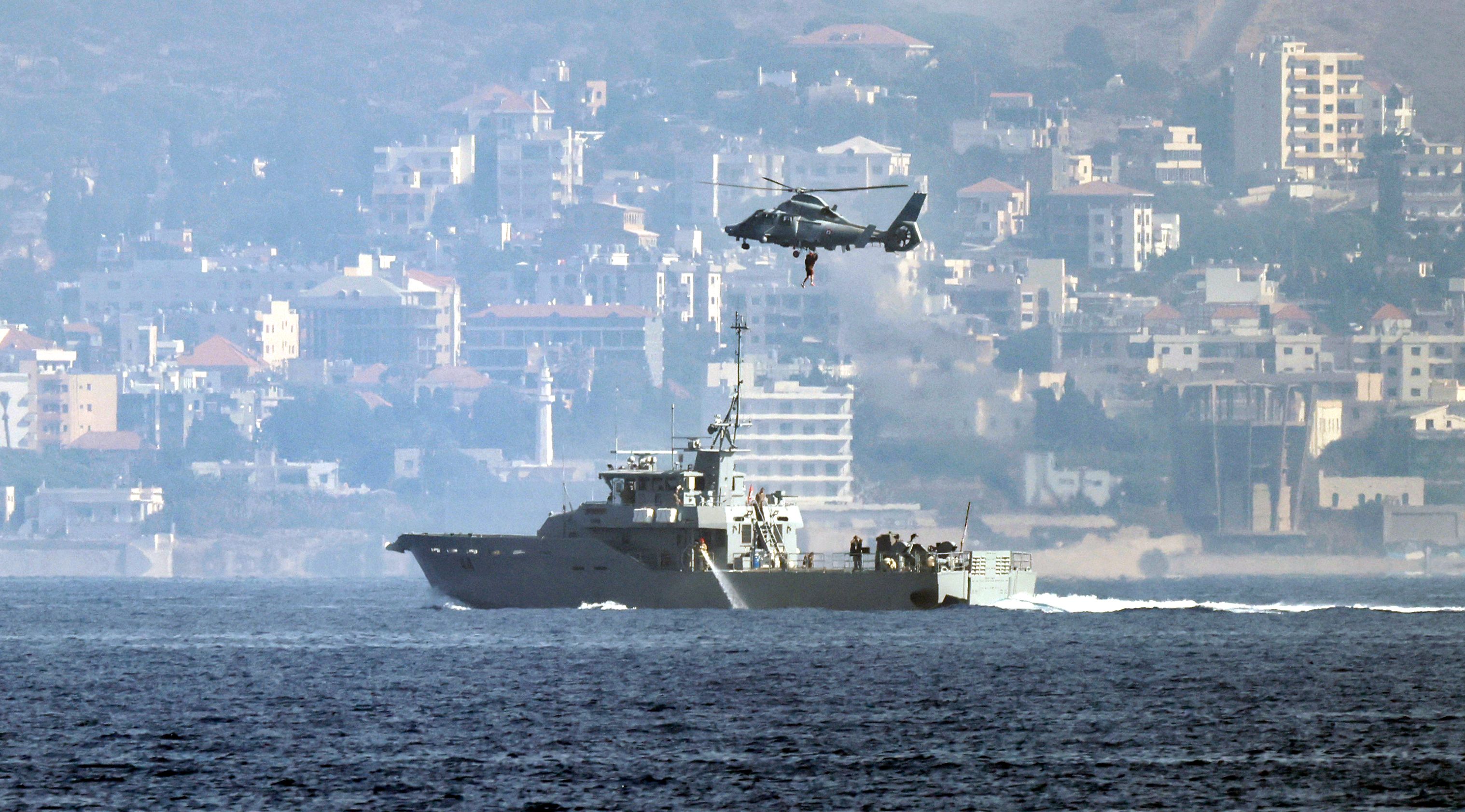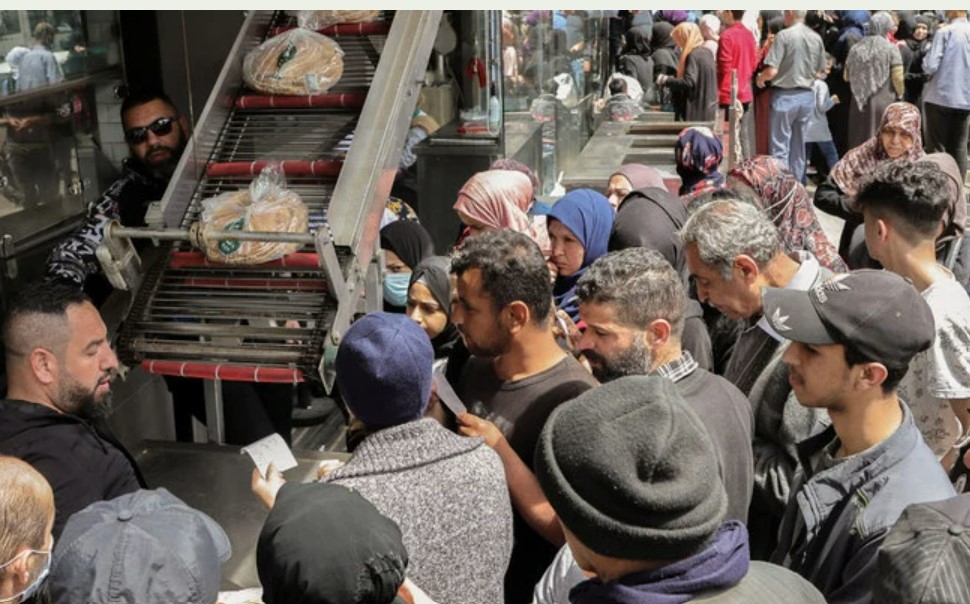
by english.alarabiya.net -- US envoy Amos Hochstein arrived in Beirut Sunday to push talks to resolve a bitter maritime border dispute between Lebanon and Israel over Mediterranean waters with offshore gas fields. “Reaching a resolution is both necessary and possible, but can only be done through negotiations and diplomacy,” the US State Department said in a statement ahead of Hochstein's visit. Washington's envoy for global infrastructure and investment is “facilitating negotiations between Lebanon and Israel on the maritime boundary”, the statement added.
Hochstein met with Lebanon's Energy Minister Walid Fayad on Sunday, and was scheduled to meet with President Michel Aoun and prime minister Najib Mikati the following day. The maritime border dispute between Lebanon and Israel escalated in early June, after Israel moved a production vessel to the Karish offshore field, which is partly claimed by Lebanon. The move prompted Beirut to call for the resumption of US-mediated negotiations on the demarcation dispute. Lebanon and Israel have no diplomatic relations and are separated by a UN-patrolled border. They had resumed maritime border negotiations in 2020 but the process was stalled by Beirut's claim that the map used by the United Nations in the talks needed modifying. Lebanon initially demanded 860 square kilometres (330 square miles) of territory in the disputed maritime area but then asked for an additional 1,430 square kilometres, including part of the Karish field. Israel claims that the field lies in its waters and is not part of the disputed area subject to ongoing negotiations.

By AFP -- In bankrupt Lebanon, Khalil Mansour has to queue for hours every day just to buy bread for his family, and some days he can’t afford it. In a country that was once nicknamed the “Switzerland of the Middle East” for its thriving banking sector before the financial crisis hit in 2019, the chronic lack of staples of the Lebanese diet was hard to bear. Lebanon defaulted on its national debt in 2020 and its currency has lost around 90 percent of its black market value.
The World Bank has branded the financial crisis as one of the worst since the 19th century, while the United Nations now estimates that four out of five Lebanese live below the poverty line. Faced with calls from international creditors for painful reforms in exchange for the release of new aid funds, the embattled government has been forced to end subsidies on most essential commodities — though not yet on wheat. The price of subsidized bread has increased, albeit less than without subsidies, but bakeries have started to ration staples. A bag of flat Arabic pita-like bread now officially sells for 13,000 Lebanese pounds (43 US cents). It costs more than 30,000 on the black market. “Last week I had to go three days without bread because I can’t afford to pay 30,000,” said Mansour, 48.
For Mansour and most Lebanese, buying bread means standing in long queues outside bakeries for hours, and sometimes by the time it’s their turn, the bakeries have run out of bread. “Today I queued for three hours, yesterday two and a half. What now?” Mansour said on Friday outside a bakery in Beirut. “I have to support my family. What else can I do?” asked Mansour, who earns the equivalent of $50 a month in a pastry shop.

By KAREEM CHEHAYEB -- BEIRUT (AP) — Lebanon appeared Friday to reject claims by the Ukrainian Embassy in Beirut that a Syrian ship docked in a Lebanese port is carrying Ukrainian grain stolen by Russia, following an inspection by Lebanese customs officials. A senior Lebanese customs official told The Associated Press that there was “nothing wrong" with the cargo of the Laodicea, which docked in the Lebanese port of Tripoli on Thursday, and that its papers were in order. The official spoke on condition of anonymity because he was not authorized to talk to the media. The controversy surrounding the ship has underscored how Lebanon, a tiny Mediterranean country bordering Syria, has been in the crosshairs of Russia’s months-long war in Ukraine. The Laodicea is carrying 5,000 tons of flour and 5,000 tons of barley that Ukraine's Embassy in Beirut says was illegally taken by Russia. After the embassy raised the alarm, Lebanese authorities initiated an investigation. The Russian Embassy, meanwhile, has told Lebanese media that the Ukrainian claim was “baseless.”
The U.S. Department of the Treasury had sanctioned the Laodicea in 2015 for its affiliation with the Syrian government of President Bashar Assad. According to the Ukrainian Embassy, the Laodicea is among scores of vessels that Kyiv alleges transported grain stolen by Russia. An embassy statement Friday said the ship had turned off its AIS tracking system in the Black Sea for 10 days, after docking earlier this month in Russia-controlled Crimea's port of Feodosia. There, the embassy said, it was “loaded with barley and wheat flour illegally exported from the territories of Zaporizhzhia, Mykolaiv and Kherson” in Ukraine — areas taken by Russia in the war.

By Najia Houssari -- arabnews.com -- BEIRUT: Angry citizens on Wednesday stormed bakeries and pastry shops in Lebanon as the country’s food crisis deepened. Long queues formed outside many stores with residents waiting impatiently in searing heat for subsidized bundles of bread. As stocks and tempers ran short, many people opted to buy other bakery products, some priced at 40,000 Lebanese pounds ($1.5) for 10 thin loaves. Others vented their frustrations by taking to social media platforms, blaming politicians and bakeries for the problem while slamming mafia organizations for selling subsidized flour on the black market and smuggling it to Syria.
In some places, soldiers were forced to intervene, removing protesters from shops, and defusing heated arguments between queueing customers. Lebanese Economy Minister Amin Salam said: “Around 49,000 tons of wheat are expected to arrive in Lebanon by the end of this week. Hopefully the ships will arrive faster. The crisis is the result of flour being stolen from our country. “A crisis cell headed by the economy ministry will be formed and a new mechanism will be set up for distributing wheat and flour fairly, and prosecuting those creating the crisis.” Lebanon’s inability to secure US dollars to continue subsidizing medicines, wheat, and fuel, on Wednesday resulted in petrol prices rising by 14,000 Lebanese pounds to reach 617,000 pounds per 20 liters.
Georges Brax, a member of the gas station owners’ syndicate, said: “The central bank used to secure 100 percent of the US dollars needed to import fuel, according to its Sayrafa platform rate. Now it provides only 85 percent. The remaining 15 percent needs to be secured based on the black-market rate.” Fadi Abu Shakra, a representative of the union for fuel distributors and gas stations in Lebanon, said: “We keep going backward. If the issue is not resolved, I don’t know where we could be heading.” At its Wednesday meeting, a ministerial committee set up to address the repercussions of the financial crisis on public facilities and headed by caretaker Prime Minister Najib Mikati, reiterated its previous recommendations to meet the demands of public sector employees, who have been on strike for more than a month, pending the approval of the 2022 budget and avoiding any burden on the state treasury.
Khazen History


Historical Feature:
Churches and Monasteries of the Khazen family

St. Anthony of Padua Church in Ballouneh
Mar Abda Church in Bakaatit Kanaan
Saint Michael Church in Bkaatouta
Saint Therese Church in Qolayaat
Saint Simeon Stylites (مار سمعان العامودي) Church In Ajaltoun
Virgin Mary Church (سيدة المعونات) in Sheilé
Assumption of Mary Church in Ballouneh
1 - The sword of the Maronite Prince
2 - LES KHAZEN CONSULS DE FRANCE
3 - LES MARONITES & LES KHAZEN
4 - LES MAAN & LES KHAZEN
5 - ORIGINE DE LA FAMILLE
Population Movements to Keserwan - The Khazens and The Maans
ما جاء عن الثورة في المقاطعة الكسروانية
ثورة أهالي كسروان على المشايخ الخوازنة وأسبابها
Origins of the "Prince of Maronite" Title
Growing diversity: the Khazin sheiks and the clergy in the first decades of the 18th century
Historical Members:
Barbar Beik El Khazen [English]
Patriach Toubia Kaiss El Khazen(Biography & Life Part1 Part2) (Arabic)
Patriach Youssef Dargham El Khazen (Cont'd)
Cheikh Bishara Jafal El Khazen
Patriarch Youssef Raji El Khazen
The Martyrs Cheikh Philippe & Cheikh Farid El Khazen
Cheikh Nawfal El Khazen (Consul De France)
Cheikh Hossun El Khazen (Consul De France)
Cheikh Abou-Nawfal El Khazen (Consul De France)
Cheikh Francis Abee Nader & his son Yousef
Cheikh Abou-Kanso El Khazen (Consul De France)
Cheikh Abou Nader El Khazen
Cheikh Chafic El Khazen
Cheikh Keserwan El Khazen
Cheikh Serhal El Khazen [English]
Cheikh Rafiq El Khazen [English]
Cheikh Hanna El Khazen
Cheikha Arzi El Khazen
Marie El Khazen